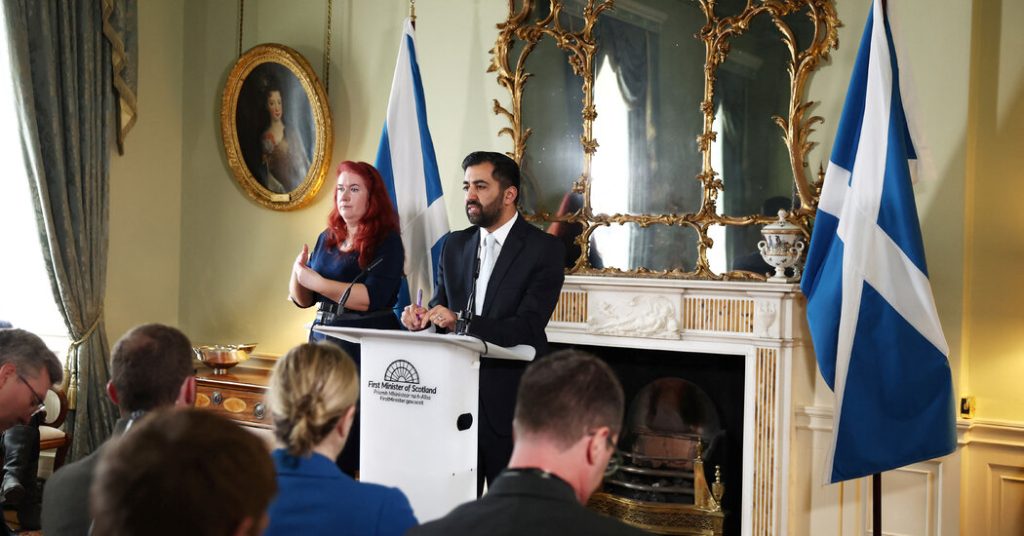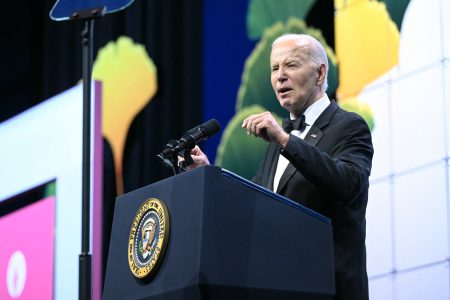Scotland’s First Minister Humza Yousaf resigned amidst a funding scandal that has plagued the Scottish National Party (S.N.P.) since Nicola Sturgeon stepped down as leader. Yousaf’s resignation was prompted by his decision to end a power-sharing deal with the Scottish Green Party, leaving him at the head of a minority government without clear allies. Following calls for two motions of no confidence, Yousaf announced his resignation after reflecting on what was best for his party, the government, and the country he leads.
After taking over from Sturgeon just over a year ago, Yousaf attempted to lead the S.N.P. through troubled times marked by a funding scandal involving Sturgeon’s husband. The crisis coincided with diminished prospects for a new referendum on Scottish independence, the party’s primary objective. Despite efforts to assert himself as leader, Yousaf struggled to navigate the challenges facing the party. The S.N.P. once dominated Scottish politics but has faced setbacks following the 2014 referendum where Scots voted to remain in the United Kingdom.
The S.N.P.’s troubles have provided an opportunity for the Labour Party to regain ground in Scotland, potentially impacting the outcome of a general election later in the year. Yousaf’s resignation, which was largely due to his decision to end the power-sharing agreement with the Greens, has further strained relations with potential allies. The rift between the S.N.P. and the Greens was exacerbated by disagreements over environmental and health policies, ultimately leading to the breakdown of the coalition.
Yousaf’s failure to secure new support highlighted the divisive nature of Scottish politics. A potential alliance with the Alba party, led by Alex Salmond, was rejected by many within the S.N.P. due to Salmond’s history with Sturgeon. This left the possibility of re-negotiating with the Greens as the most viable option to salvage the government and prevent an early election. However, the Greens were unwilling to forgive Yousaf for abruptly ending their agreement, leading to further complications for the minority government.
Yousaf’s resignation comes at a challenging time for the S.N.P., which has been grappling with internal turmoil and a wavering stance on key political issues. The party’s reputation has been tarnished by the funding scandal and the breakdown of alliances with potential coalition partners. Yousaf’s departure as Scotland’s first Muslim leader underscores the complex political landscape in Scotland, where relationships between parties are fragile and alliances are difficult to sustain.
As the Scottish Parliament has 28 days to choose a successor to Yousaf, the S.N.P. faces a period of uncertainty and upheaval. The outcome of the party’s leadership election could shape the future of Scottish politics and the prospects for a new referendum on independence. With the Labour Party poised to make gains in Scotland, the S.N.P. must navigate the challenges ahead and rebuild trust with potential allies to maintain its position as a dominant force in Scottish politics.















